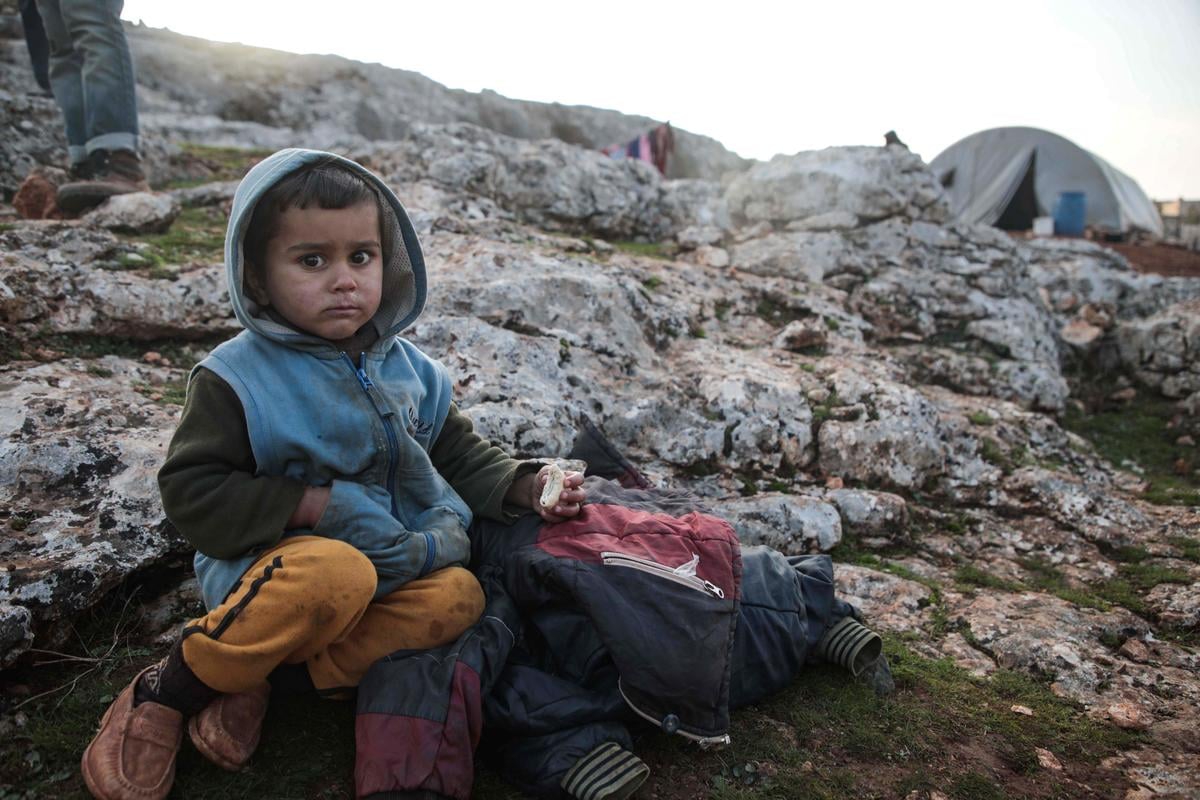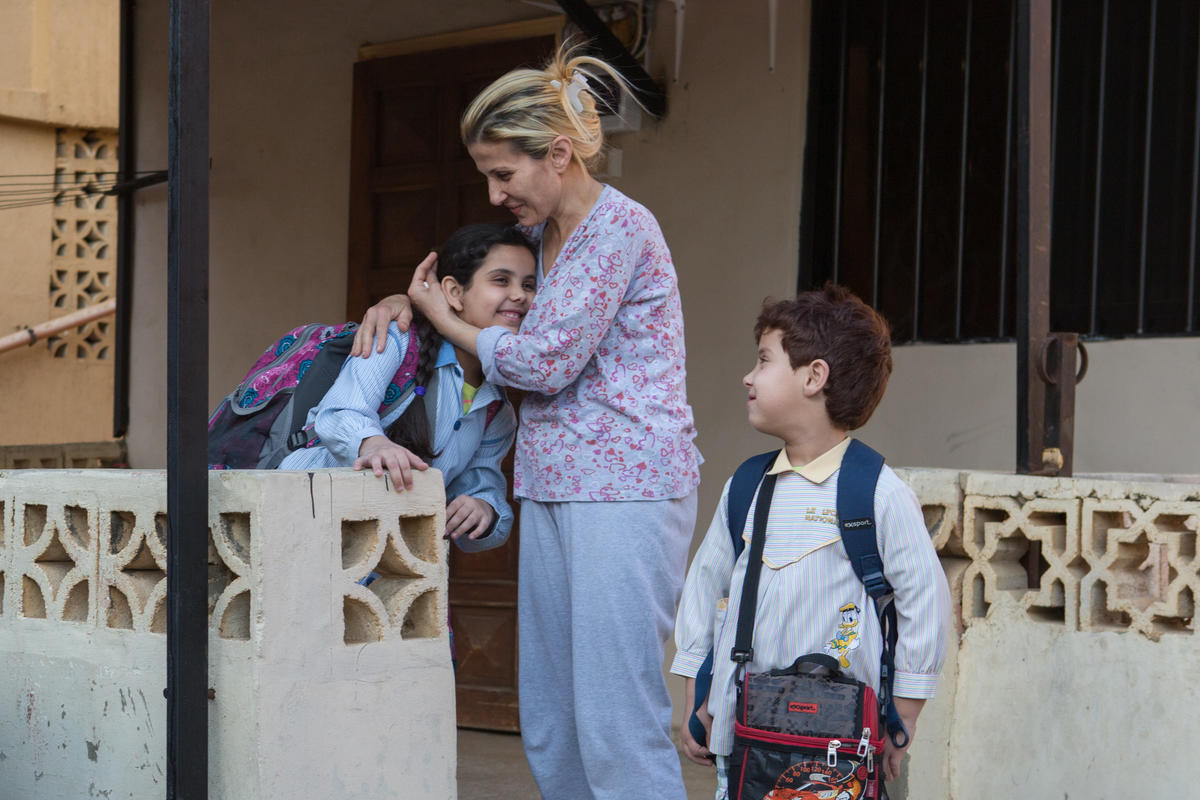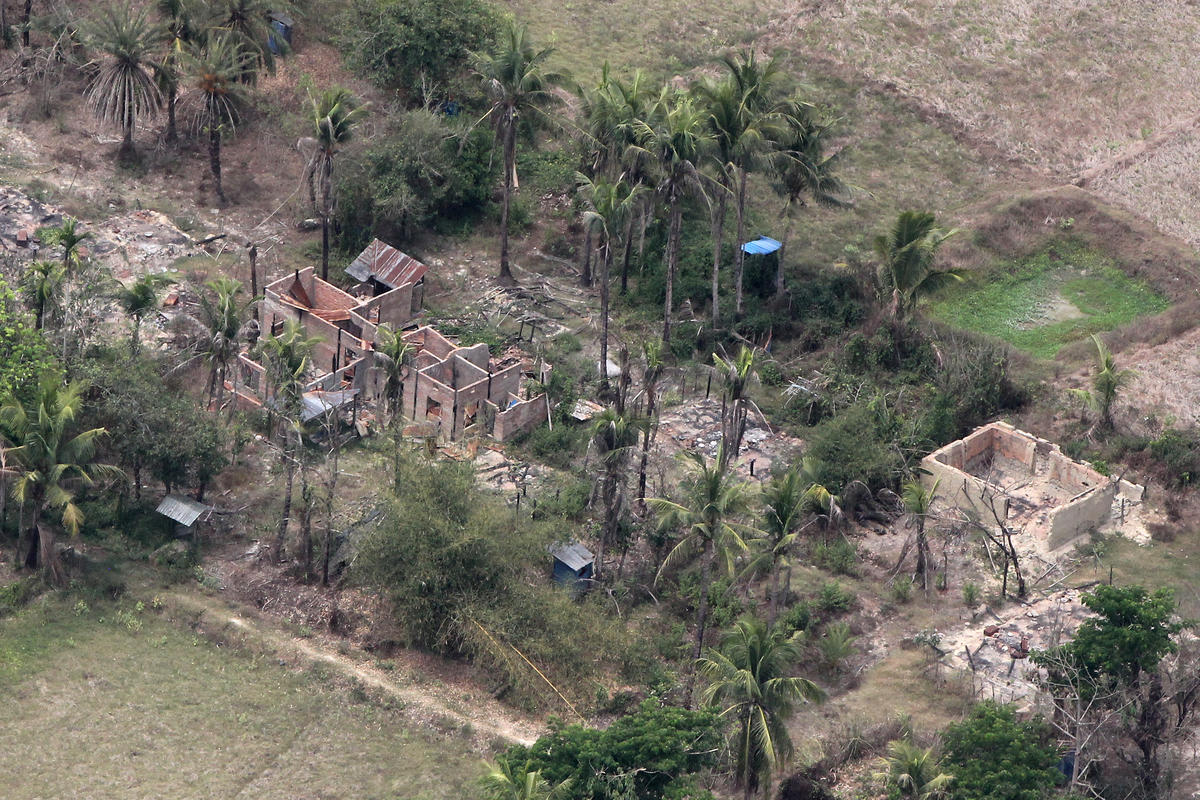UNHCR alarmed by increased violence against Palestinians in Iraq
UNHCR alarmed by increased violence against Palestinians in Iraq

GENEVA, October 20 (UNHCR) - A mortar attack last night in Baghdad's Palestinian neighbourhood of Al Baladiya which left four Palestinians dead, a dozen wounded and many displaced is an alarming escalation of the violence engulfing this vulnerable community and may force others to flee, according to the UN refugee agency.
"UNHCR has repeatedly expressed concern about the many threats faced by thousands of Palestinian refugees in Baghdad and along the borders with Syria and Jordan," the refugee agency's chief spokesman, Ron Redmond, told journalists in Geneva on Friday.
Initial reports received by UNHCR said shelling began in the Baladiyat Palestinian area about 8:30 p.m. and lasted for about half an hour. UNHCR Baghdad staff began receiving phone calls from the terrified Palestinians almost immediately. They said at least a dozen were wounded, some of them children and women and some of them seriously. An initial attempt to get an ambulance into the area to help the wounded failed when the vehicle was attacked by militiamen.
Militia had previously warned Palestinians they should leave the neighbourhood. The Al Baladiya area used to house some 8,000 Palestinians, but reports by Palestinian sources now say that there are only about 4,000 remaining there.
"With this latest incident, it is now very possible that we will see more Palestinians trying to leave for surrounding countries, primarily Syria and Jordan. This worries us because both of those countries have closed their borders to Palestinians," said Redmond.
There are already some 340 Iraqi Palestinians at the Syria-Iraq no-man's land hoping to enter Syria. They began arriving at the border in May 2006 and their numbers have steadily grown since then. There have also been numerous reports of Palestinians being turned away at the border.
Some Palestinians fled to Iraq from their homes in the newly created Israel in 1948 and others were born in the country. Under the regime of former Iraqi President Saddam Hussein, Palestinians were perceived as receiving preferential treatment. But, since Saddam's overthrow in 2003, they have become targets.
In 2003, UNHCR registered 23,000 of an estimated 34,000 Palestinians in Iraq and believes 20,000 of them remain in the country.
"They haven't had much option, and we are extremely concerned over the plight of those remaining, and the inability to provide them with protection," Redmond added.
The Iraqi government and the multinational forces are responsible for providing the necessary protection, particularly of refugees in Iraq who have no alternatives for protection elsewhere.
"We strongly appeal to neighbouring countries to keep their borders open for Palestinian refugees from Iraq, and to extend once more, in this holy month of Ramadan, the customary generosity and humanitarian concern that could provide safety to Palestinians under threat," said Redmond.
Syria and Jordan alone should not be expected to carry the entire burden, said Redmond, appealing to other Arab countries within and outside the region to accept some of those who feel compelled to flee Iraq.
"It is now urgent that international support and goodwill are found to bring at least a temporary solution for Palestinians from Iraq," he said.
UNHCR has already tried several possibilities to no avail, including entry to Jordan and Syria; return to the Palestinian territories, with permission of Israel; relocation to other Arab states; and resettlement outside the region.
Meanwhile, the UN refugee agency continues to advocate for better protection of the Palestinian community inside Iraq.
"But under the present circumstances, return to Iraq is no option unless security is restored," Redmond said. "Right now, it's an untenable situation for the Palestinians and it appears to be getting worse."
The situation is also worsening for internally displaced Iraqis. Using figures from several sources, UNHCR's Iraq unit estimates 754,000 Iraqis have been internally displaced since 2003 - some 365,000 of them since February in the wake of sectarian violence sparked by the Samara bombings.
"We remain extremely concerned about the rapidly deteriorating situation in Iraq and the ongoing displacement this is creating both inside and outside Iraq," said Redmond.
Figures from the government of Iraq, UNHCR and its partners, indicate that more than 1.5 million people are presently displaced inside Iraq, including some 800,000 who fled their homes prior to 2003, as well as the 754,000 who have fled since. An additional 20,000 people are presently estimated to be temporarily displaced, awaiting the end of military operations in their towns and regions.
Another 1.6 million Iraqis are in other countries in the region, mainly Jordan and Syria. Many have been outside Iraq for a decade or more, but some 40,000 Iraqis are now arriving in Syria alone each month. Most of them do not register with UNHCR.








